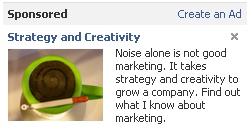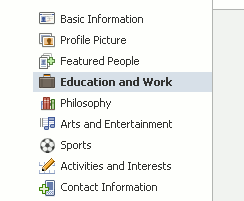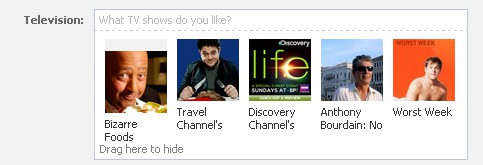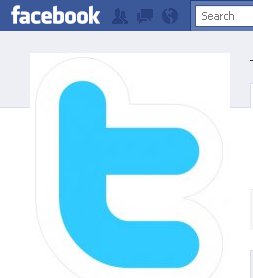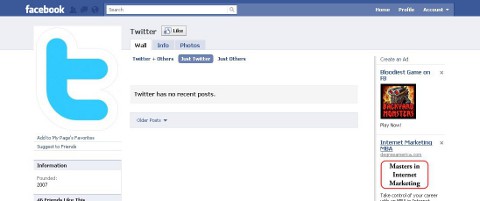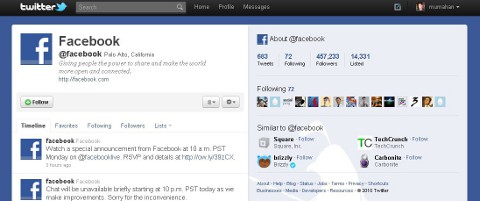
I have heard people question how Facebook can support 650 million accounts and remain free to users. Some people have even held the absurd notion that Facebook will someday charge users.
Funding Facebook is something that most users don’t give a lot of thought to, as they connect and have fun with their friends. Most people will easily overlook the huge volume of advertisement dollars Facebook generates from their ads. Advertising is a very successful business model on the Internet (REF: Google, YouTube, Facebook, and etcetera). It is how Facebook makes money, and those advertisements facilitate Facebook’s bloated $50 Billion valuation in January 2011.
Internet users are very accustomed to seeing advertisements. Many of us became relatively immune to much of the advertising, years ago. Yesteryear’s ads were not very well targeted, and many still are not, but that is not because of the tools.
As the Internet grew smarter, ad targeting platforms became smarter. Advertising targeting and reporting is vital to a campaign’s success, and so the tools have evolved to meet the challenges. Facebook has done extremely well in this area, and I commend them. Their system provides for excellent demographic, geographic, and psychographic modeling and targeting, and should not be underestimated.
Facebook advertising can be an excellent tool for business. Make no mistake about that! The information you can learn from Facebook’s ad reporting can provide great insight to a marketing campaign. I explained more about the value and usage of Facebook advertising in a previous article titled “Facebook Marketing: Pages, Customer Modeling, Promoting, and Awesomeness“. That article is great reading for anybody who wants to understand the value of Facebook marketing.
I like Facebook, and I even like the new Facebook profile.
An Unqualified Rant About Facebook Ads
Here is my unqualified rant. OK, maybe it is a little bit qualified, but I realize that some people will whine, snivel, and argue that I am wrong. I do that to people. I give them something to talk about.
I know Facebook ads well. I have used the Facebook ad system for client projects of many types, and I have had a mostly great experience with it. Facebook reviews each ad submitted to their system, and either approves or declines it, and they are doing a good job of it. When a friend recently complained of having his ads declined by Facebook, I thought he must be doing something wrong. After all, I never had an ad declined, but now that has changed.
I finally had my first declined Facebook ad a couple days ago. At first, I thought it was no big deal. Then I realized how silly their reason was for declining the ad. I will show you the ad, explain why it was declined, and also why I think it was nit-picking on Facebook’s part.
First, I will explain that this ad was intended to reach a targeted group of people as a part of my campaign to stop providing marketing consulting services. You see, I am not-so-secretly tired of selling what I do. I love doing what I do, but I do not enjoy the short-sightedness and lack of strategy that I witness with so many companies when it comes to their marketing. I said it well when I wrote “When I Go to Hell, They Will Have Me Selling SEO“. That is because selling the kind of marketing services I provide often makes me feel like I am trying to explain quantum physics to third graders. Perhaps more to the point, it feels like explaining the color blue to blind people.
This ad was targeted at headhunters. You know, those executive recruiting folks. It was to lead them to my aWebGuy Facebook page. Specifically, it was to lead them to the “My Tools” tab of the aWebGuy Facebook page.
I am not applying to companies for open jobs, but I am interested in a long-term objective outside of independent consulting. I know, it may sound like a big step backward. I just want to enjoy my work without having to feel like a third grade teacher while talking with new clients.
I moved far beyond the typical marketing job ages ago, and the type of work that I am qualified for is often not advertised on job boards. It takes a slow-burn approach, and so I want to be sure that headhunters recognize my name when they find themselves seeking to place a new Director of Marketing or VP of Marketing.
The image above is my proposed ad, and Facebook’s reason for declining the ad was explained as follows:
At first, I thought “It is just a picture of my birthday cake. How could that be so offensive?” Then I realized that it was declined for a violation of Facebook Advertising Guidelines section 5 d iii. You may wonder, “What is 5 d iii?” Well here you go:
5. Prohibited Content
d. Ads cannot contain, facilitate, promote, or reference the following:
iii. Tobacco products;
Stand Up for Facebook Ad Rebels!
Here comes the silly part. Based on the targeting criteria, and Facebook’s advertising guidelines, I could have used a couple hookers and a bottle of Scotch, but not my birthday cake. I guess I must just be a real life badass if my birthday cake is banned from Facebook ads, but that’s how I roll!
I love marketing for clients, and I serve them very well, but there is a unique challenge to marketing myself and my future. When it comes to marketing myself, the approach is quite long-sighted. That is because I must be selective about the buyer. This is where you come in, and I am asking you to stand up for my rebelion. Do you know any of those headhunters who should be aware of me? Pass my name along, will you?
If you think Facebook was nitpicking, please click my “Like” button and share this to show that even the rebels have a place on Facebook. Otherwise, you can “Lump” it and just keep reading my blog.
Podcast: Play in new window | Download
